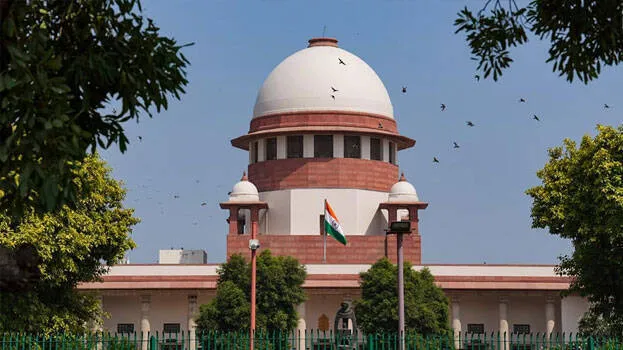

NEW DELHI: In a significant verdict favoring state governments, the Supreme Court has ruled that Governors cannot indefinitely delay decisions on bills passed by the legislature. The court stated that Governors must take action on such bills within three months.
The judgment came in response to a petition filed by the Tamil Nadu government, which challenged the actions of Governor R. N. Ravi, who withheld ten bills for an extended period before forwarding them to the President. The court invalidated the Governor’s actions and declared all ten bills as duly passed.
Meanwhile, a similar petition filed by the Kerala government against former Governor Arif Mohammed Khan is currently under the Supreme Court's consideration.
The bench, comprising Justices J. B. Pardiwala and R. Mahadevan, asserted that Governors do not possess discretionary powers to question the decisions of democratically elected governments. The judgment also emphasized that any action against a government elected by the people would be a violation of the oath of office.
Governor R. N. Ravi had sent the ten bills to the President after the Supreme Court's ruling in the Punjab Governor case, which stated that bills must not be indefinitely delayed.
Governor's power is limited
Under Article 200 of the Constitution, a Governor may grant assent to a bill, withhold assent, or refer it to the President. However, the article does not specify a time frame — a gap that the Supreme Court ruling now addresses with clarity.
Key clarifications from the court include:
“Don’t reduce bills to just paper; respect democracy”
The court strongly stated that if bills are indefinitely delayed, they are reduced to mere paper and "fleshless skeletons." The Governor must act based on the advice and aid of the Cabinet. Governors are expected to respect the expectations of the people who elected the government and the traditions of parliamentary democracy.
The judgment stressed that Governors, holding a high constitutional office, must prioritize the welfare and aspirations of the state's people and cooperate earnestly with the state administration.
Quoting Dr. B.R. Ambedkar, Justice Pardiwala concluded:
"However good a Constitution may be, it is bound to fail if those implementing it are not good."
“The Governor should act as a friend, guide, and philosopher of the government—without any political bias—and uphold the sanctity of their oath.”
– Supreme Court
"Supreme Court verdict upholds federal structure and democratic rights of legislatures."
– Chief Minister Pinarayi Vijayan